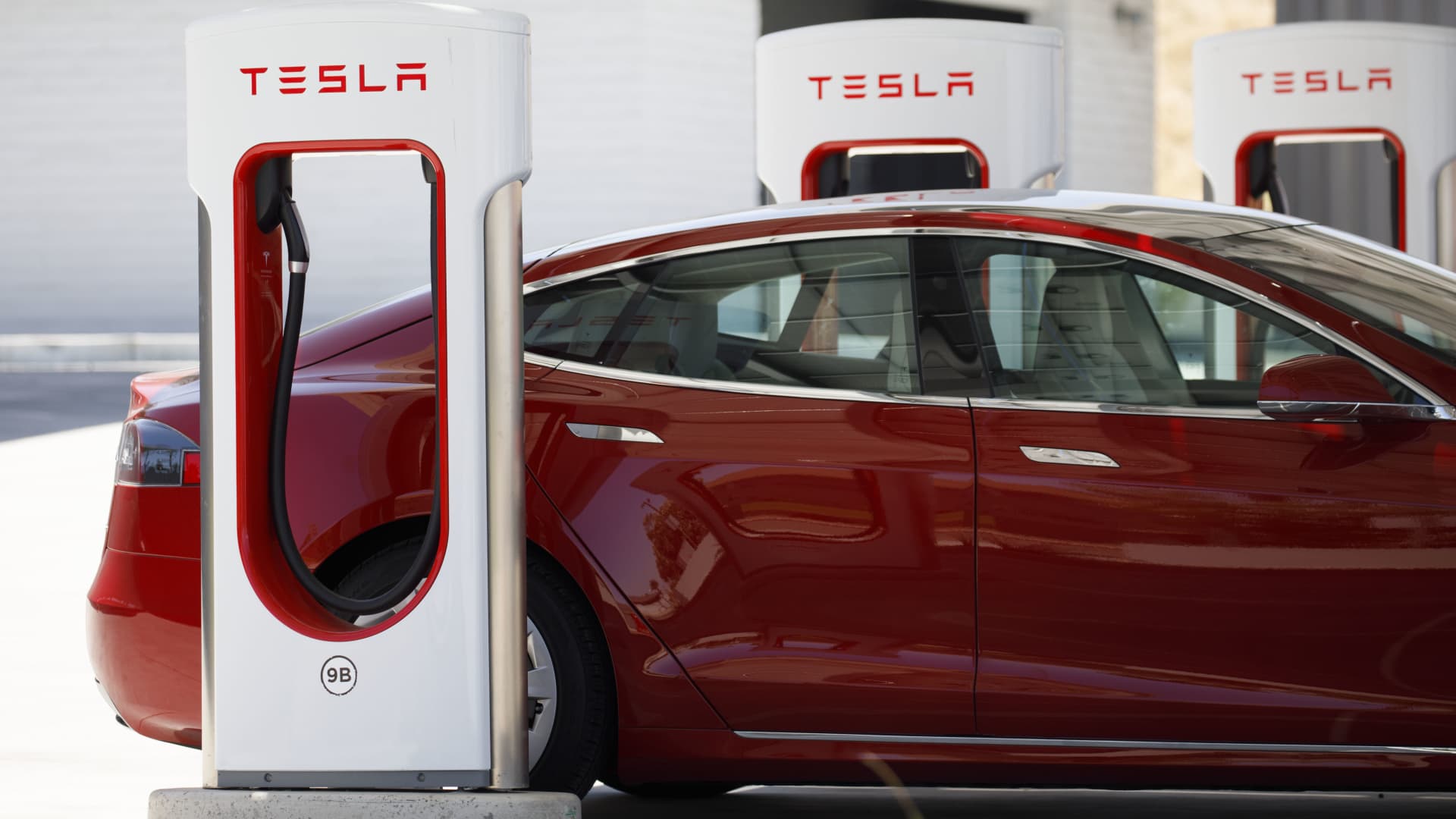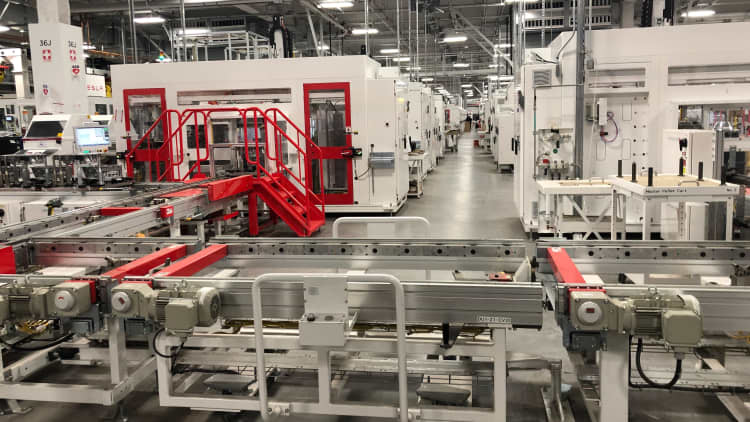Shares of Tesla suppliers in Asia take a beating after automaker misses targets

A Tesla Inc. Model 3 long range electric vehicle charges at the Tesla Supercharger station in Kettleman City, California, U.S., on Wednesday, July 31, 2019.
Patrick T. Fallon | Bloomberg | Getty Images
Shares of electric vehicle makers and Tesla‘s Asia suppliers tumbled on Thursday after the EV maker missed fourth quarter revenue and profit targets and warned of slower sales this year.
On Wednesday, Tesla said during an investor presentation that vehicle volume growth in 2024 “may be notably lower” than last year’s growth rate as the company works toward launching its “next-generation vehicle” in Texas.
South Korean display manufacturer LG Display, known to supply the car displays for Tesla’s Model 3, fell more than 4%.
Battery suppliers to Tesla also saw declines. LG Energy Solution fell as much as 3.8%, Panasonic Holdings fell more than 2% and Samsung SDI slipped 1.3%.
Tesla’s rivals in Asia also fell.
BYD — which surpassed Tesla as the world’s top-selling maker of EVs in the fourth quarter of 2023 — fell about 2%.
On Jan. 2, the Chinese EV maker reported sales of about 526,000 vehicles for the quarter, compared to Tesla’s figure of about 484,000.
However, Tesla was still the top seller of EVs on an annual basis, delivering more than 1.8 million vehicles to customers in the year ended December 2023, compared to BYD’s figure of just under 1.6 million.
EV makers Nio, Xpeng and Li Auto were among the largest losers on the Hang Seng index, with Nio plunging over 7%. Shares of Xpeng lost 6.05% while Li Auto fell 4.47% in early trade.

Revenue and EPS miss expectations
Elon Musk’s carmaker is a bellwether for the electric vehicle industry.
Tesla suppliers are trading lower after its disappointing results, while other EV makers in Asia fell due to its downbeat production outlook for the year.
Revenue for the fourth quarter increased by 3% to $25.17 billion, but was lower than the $25.6 billion expected by LSEG, formerly Refinitiv.
Earnings per share for the fourth quarter came in at 71 cents, compared to 74 cents expected by LSEG.
Net income for the fourth quarter more than doubled to $7.9 billion, or $2.27 per share, with the increase attributed mostly to a one-time noncash tax benefit of $5.9 billion.
The figure was also more than double the $3.7 billion, or $1.07 per share recorded in the same period a year earlier.










